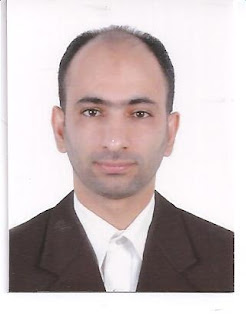

6 SEPTEMBER 2012
Reporters Without Borders condemns a decision by the supreme court in Manama on 30 August to extend journalist and blogger Ahmed Radhi’s detention for another 15 days.
Charged with participating in an illegal demonstration and disturbing the peace, Radhi was arrested on 16 May (LINK) after criticizing a proposed union of Bahrain and Saudi Arabia in interviews he gave to BBC Arabic Radio and the London-based exile television station, Lulu TV.


6 SEPTEMBER 2012
Reporters Without Borders condemns a decision by the supreme court in Manama on 30 August to extend journalist and blogger Ahmed Radhi’s detention for another 15 days.
Charged with participating in an illegal demonstration and disturbing the peace, Radhi was arrested on 16 May (LINK) after criticizing a proposed union of Bahrain and Saudi Arabia in interviews he gave to BBC Arabic Radio and the London-based exile television station, Lulu TV.
“After so many rulings restricting media freedom in Bahrain, this latest violation, decided by the country’s highest judicial authority, is indicative of the decline of an institution that is meant to represent impartiality and fairness, one that is supposed to issue just decisions, not judicial ones.
“The international community must put pressure on Bahrain, and on Saudi Arabia, which openly supports the Bahraini monarchy, to end the policy of suppressing dissent, which the monarchy is pursuing with complete impunity. We urge the authorities to rescind this decision and to drop all charges against journalists and others who were arrested for using the freedom of expression.”
According to the information obtained by Reporters Without Borders, Radhi has been subjected repeatedly to physical and psychological violence in prison to force him to confess to the charges brought against him. The decision to extend his detention highlights the speciousness of the king’s claim that no more journalists are in prison because of their views.
Aside from keeping a journalist in detention, the ruling is a violation of the November 2011 recommendations by Cherif Bassiouni’s Independent Commission of Inquiry, which called on the government to stop detaining journalists whose only offence was to exercise their free speech rights by expressing their opinions.
The commission also urged the authorities to relax their control of the media and to give the opposition more access to the state-owned media – TV and radio as well as print.
In a separate ruling on 3 September, a Manama appeal court upheld the long jail sentences imposed on 20 leading opposition figures for allegedly plotting to overthrow the government. Eight of them got life imprisonment and the others got sentences ranging from five to 15 years. They include Abdullah Al-Khawaja, who staged a 110-day “death or freedom” hunger strike in protest against his detention.
The alarming state of media freedom in Bahrain dates back above all to the state of emergency that was declared on 15 March 2011 in order to crush a wave of street protests that had begun a month earlier. Journalists and others who provided information about the crackdown, especially photos and video footage, were the targets of arbitrary and systematic arrests and physical attacks.
There have been three fatalities – Zakariya Rashid Hassan, the moderator of a web forum about the village of Al-Dair, who died in detention on 9 April 2011, Karim Fakhrawi, one of the founders of the independent newspaper Al-Wasat, who died in detention three days later, and Ahmed Ismail Hussain (LINK), who was shot dead while filming a peaceful demonstration in Salmabad, a village southwest of the capital, on 31 March 2012.
King Hamad Ben Aissa Al-Khalifais on the Reporters Without Borders list of predators of press freedom.
rsf.org
